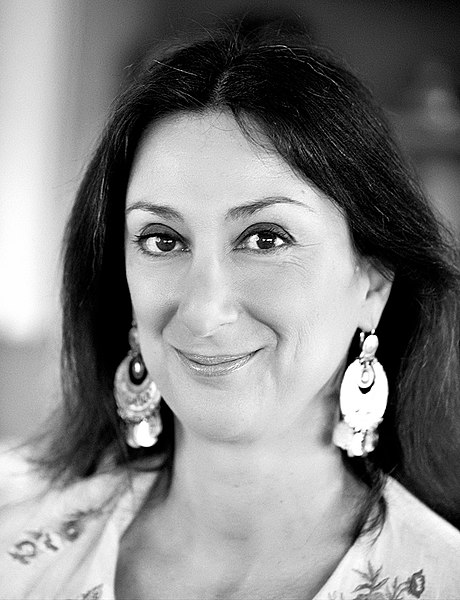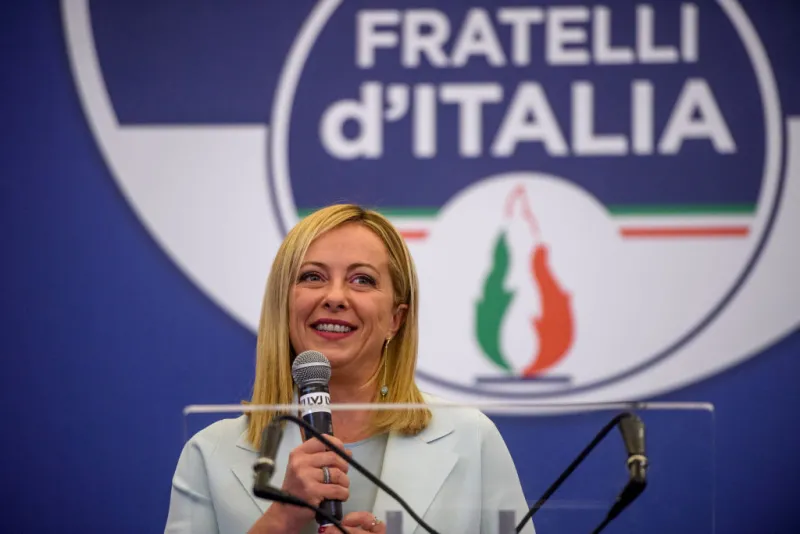
I was at the sports centre with my children when I received the phone call. I thought nothing of it as I saw my father’s number on the screen and answered, expecting a casual chat as I stood in the queue for a coffee. “I wanted you to hear about it from me before you read about it in the papers,” he said quietly, “Daphne Caruana Galizia has been murdered.”
I stood, trembling with shock as he described how a well-known Maltese journalist had posted a message on her blog, climbed into her car, and been killed instantly when a bomb was detonated just minutes after she drove away. This was a carefully planned assassination of a woman who was known for uncovering corruption within the Maltese government and beyond. And it took place in broad daylight. In Malta in 2017.

I have never procrastinated over an article more than this one, partly because – of all the hateful messages I have received as a writer over the years – none have ever been as hurtful as those written by Maltese readers, but mainly because Daphne’s murder has brought up such painful memories for those of us who fled Malta, or whose families fled, during the 1970s and 1980s. For the overwhelming majority of people who have even heard of Malta, the country is a charming little Mediterranean island to go for a family holiday: sun, wine, friendly English-speaking people, quirky little customs. What more could anyone want for a relaxing break? Few remember or care about Malta’s dark political past, when Dom Mintoff’s hideous socialist government snuggled up to Gaddaffi and turned the island into an oppressive hellhole rife with corruption and paranoia.
It was that Malta my family were forced to leave in the early 1980s when my father was falsely accused of involvement in a plot to overthrow the government. The idea of my father being caught up in some kind of political revolution would be funny if he hadn’t spent a year-and-a-half in a squalid prison fighting to prove his innocence, and if we had not been left destitute, homeless, stateless and – for a time – separated from one another. My early memories are haunted by fear, confusion, and loneliness. I remember being forcibly restrained by an enraged adult who shouted in my face that I would be beaten to a pulp if I didn’t stop crying immediately. I recall watching my parents talking to one another in Maltese and wondering who on earth these people were, jabbering away in a language I could not understand.
I found out much later that I had the dubious honor of being born on the darkest day in Malta’s modern political history. This was the day a mob attacked the headquarters of The Times of Malta (the main opposition newspaper) and ransacked the home of the opposition leader, terrorizing his wife and children. When I began looking into the past in my early twenties with the idea of writing a book, I quickly discovered that everyone who opposed the Mintoff government seemed to have their own story. A middle-aged doctor who befriended me when I was a student had been forced to leave with forty-eight hours’ notice, along with over forty other medical students; another friend tells the story of the night he and his mates went out for a drive – a big deal for teenagers at a time when few owned cars – and confronted a man they found urinating in the doorway of a chapel. The man turned out to be a police officer; they were set upon by thugs, savagely beaten, threatened with lengthy prison sentences and forced to go into hiding whilst a sympathetic lawyer fought to save them from the eight separate criminal charges filed against them. The editor of my early novels was one of the journalists rescued from The Times of Malta offices, “white and shaking” in his words, on that fateful day in 1979.
Perhaps I was too young to embark upon such a project, but I quickly realized that the investigative book I had intended to write was simply never going to happen. I had applied to and been sent my father’s Amnesty International file which turned out to be a mine of information – letters, telegrams, newspaper cuttings – but every time I sat down to work, the flashbacks started and I would resign myself to another tormented night awake. In the end, I retreated to the safety of fiction and wrote Father William’s Daughter (Allied Newspapers, 2007). An eleven-year-old girl, Francesca Saliba, witnesses the death of her father – a prominent lawyer and opponent of the government – in a carefully staged car crash. She knows it was murder but only her uncle, an English priest, believes her story. Ten years later, they travel back to Malta together to try to find out what really happened on the night Francesca’s father was killed and who was responsible. Many of the characters in the novel are based on real people – Alfred, the innocent, quietly decent man who refused to plead guilty to a crime he had not committed; Annalisa the medical student, forced to say a tearful farewell to her family and country with a moment’s notice; the endlessly patient uncle trying desperately to be a voice of reason to a wayward niece who is only ever one step away from going stark staring mad.
I meant the book to be a testament to the past, not a prediction of the future. At the time of writing, Malta’s situation looked more optimistic. The country had recently joined the European Union, the country hadn’t entirely sold out culturally or spiritually, and the island had yet to gain a reputation as a nation that used migrants as scapegoats whilst selling Maltese passports to the highest bidder. Father William’s Daughter received mixed reviews in the Maltese press with the worst criticisms being that it was ‘bourgeois’ and that I clearly had an agenda. I am happy to plead guilty to the latter claim, but at the time it hardly seemed to matter. All I cared about was attempting to start a conversation about Malta’s recent history and – on a personal level – to make peace with the past and move on as Francesca Saliba struggles to do during the course of the novel.
Taking the book off the shelf now, I feel an overwhelming sense of despair. I remain proud of my motherland’s heroic heritage, including its brave stand against the Ottomans and the Nazis; it is a tiny island with an extraordinary story stretching back seven thousand years. I tell my children stories of St Paul’s shipwreck, of marauding pirates and revolutions, and acts of courage under fire. Most importantly, every night, I sit with my children and we pray the rosary the way I remember sitting with my Nanna during the long summers when we were finally able to return as visitors. She had a tumbledown house in Sliema called Niagara after the place in America where her own father had earned his money, which I remember full of her icons and photographs and the promise of sweeties if I was a good girl and sat through all fifteen decades.
But I cannot avoid the horror of what is happening to Malta today. As other journalists have already warned in the soul-searching following Daphne Caruana Galizia’s death, there is a difference between the violence of thirty years ago and the atrocity that has just happened. Thirty years ago, there was a sense that the bad times were ending and that the next generation might enjoy a better future; Daphne’s murder marks the beginning of something. Her son described it as an act of war and if it is such a thing, it is hard not to wonder whether there can be any winners and what sort of a country will be left at the end of it.
Malta is not a country that makes international headlines very often. Friends have always delighted in teasing me by asking where Malta is, getting a magnifying glass out to look at it on the map or asking: “Who owns Malta? Italy or Libya?” The joke is in rather poor taste now with Malta being emblazoned across the news outlets of the world with the subtitle ‘Mafia State.’ I no longer know who owns Malta, but I doubt anyone does anymore. I only know that this is not simply the past repeating itself; the professional assassination of an investigative journalist who dug a little too deep is a warning of infinitely darker times ahead. San Pawl Missierna, itlob ghalina [St Paul our father, pray for us].
If you value the news and views Catholic World Report provides, please consider donating to support our efforts. Your contribution will help us continue to make CWR available to all readers worldwide for free, without a subscription. Thank you for your generosity!
Click here for more information on donating to CWR. Click here to sign up for our newsletter.






So sad. I will be praying for the people of Malta …
Excellent essay. Sad, to be sure, but excellent.